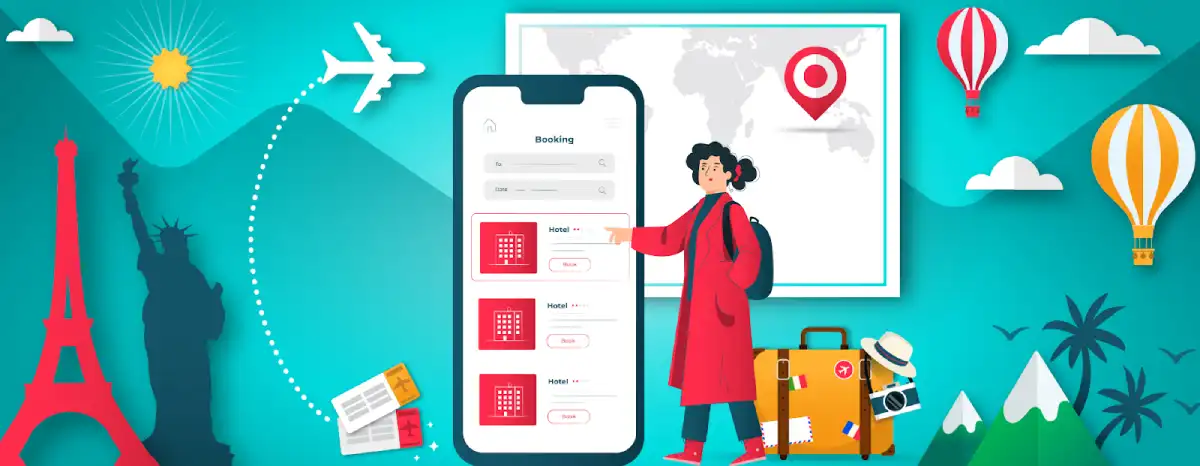
Travel planning has undergone a remarkable transformation. Travelers no longer craft itineraries manually or communicate with travel agents as the norm.
Today, AI-powered personal travel assistants are reshaping the travel industry, offering customized recommendations and solving problems in real-time.
When planning a trip with AI travel assistants, it’s also wise to consider how a VPN can save you money. By using a VPN, like ExpressVPN, to check flight prices from different countries, you might find better deals.
Airlines sometimes offer lower prices in specific markets, and with a VPN, you can take advantage of these savings. So, not only does a VPN protect your online privacy, but it also has the potential to make your travel more affordable.
Understanding AI-Powered Personal Travel Assistants
AI-powered personal travel assistants are sophisticated platforms that use artificial intelligence to help users plan and manage their travel.
They leverage machine learning and natural language processing to offer a seamless travel experience. These systems learn from each interaction, continually improving the quality of their suggestions and support.
Features of AI-Powered Travel Assistants
From crafting a bespoke itinerary to providing updates on flight changes, AI travel assistants are equipped with various features.
They offer language translation services, cultural insights, and personalized local recommendations, all accessible through user-friendly interfaces.
They also help travelers navigate transport options, manage expenses, and adjust plans based on real-time events.
Popular AI-Powered Personal Travel Assistants on the Market
Several AI travel assistants have emerged, each with unique offerings:
TripIt
TripIt is an itinerary-management app that organizes travel plans in one place. Utilizing AI, it automatically creates an itinerary for each trip by extracting information from confirmation emails for flights, hotels, rental cars, and events.
TripIt offers a freemium model, with the basic service being free and a premium service with additional features such as real-time flight alerts, seat tracking, and alternative flight suggestions.
HelloGbye (Amgine)
HelloGbye offers a unique AI-driven solution for booking travel. Users can speak or type their travel plans into the app, and the AI interprets the information to find suitable flights and accommodations.
Travelers can make complex arrangements with simple language using its nuanced understanding of human language.
SuperTravel
SuperTravel operates an AI-powered travel concierge that allows users to find and book hotel deals over SMS and Facebook Messenger. The bot negotiates with hotels to get users the best prices and offers 24/7 support for travel inquiries.
Eddy Travels
Eddy Travels is an AI travel assistant that works within messaging apps like Telegram, WhatsApp, and Facebook Messenger. It helps users find the best deals for flights, accommodation, and car rentals with a simple text input.
Olivia by Viajala
This Latin American metasearch engine offers an AI-powered assistant named Olivia, which helps users find the best flight and hotel options. It learns from user interactions to provide more tailored results over time.
Sonder
While not a traditional travel assistant, Sonder is an app that uses AI to offer travelers unique accommodations with the added benefit of a 24/7 concierge service. Their service combines the personal touch of a vacation rental with the reliability of a great hotel.
The Benefits of Using AI for Travel
AI travel assistants personalize the travel experience. They save time, are available around the clock, and enhance decision-making with data-driven insights.
Users often find that AI helps optimize travel budgets by identifying the best deals and managing expenses effectively.
Challenges and Limitations
However, using AI in travel has its challenges. Privacy is a significant concern as these platforms operate on extensive personal data.
There’s also the risk of becoming too dependent on technology, potentially reducing spontaneity and adventure in travel. AI may struggle to understand human preferences and complex problems that require empathy.
The Future of AI in Travel
The horizon looks bright for AI in travel. We can expect to see these assistants becoming more intuitive, integrating with other technologies, and possibly even offering anticipatory suggestions based on predictive analytics.
Conclusion
AI-powered personal travel assistants are transforming how we plan and experience travel. They bring a level of personalization and efficiency that was previously unattainable.
As technology advances, the travel industry looks set to evolve even further, making travel more enjoyable and less stressful.






